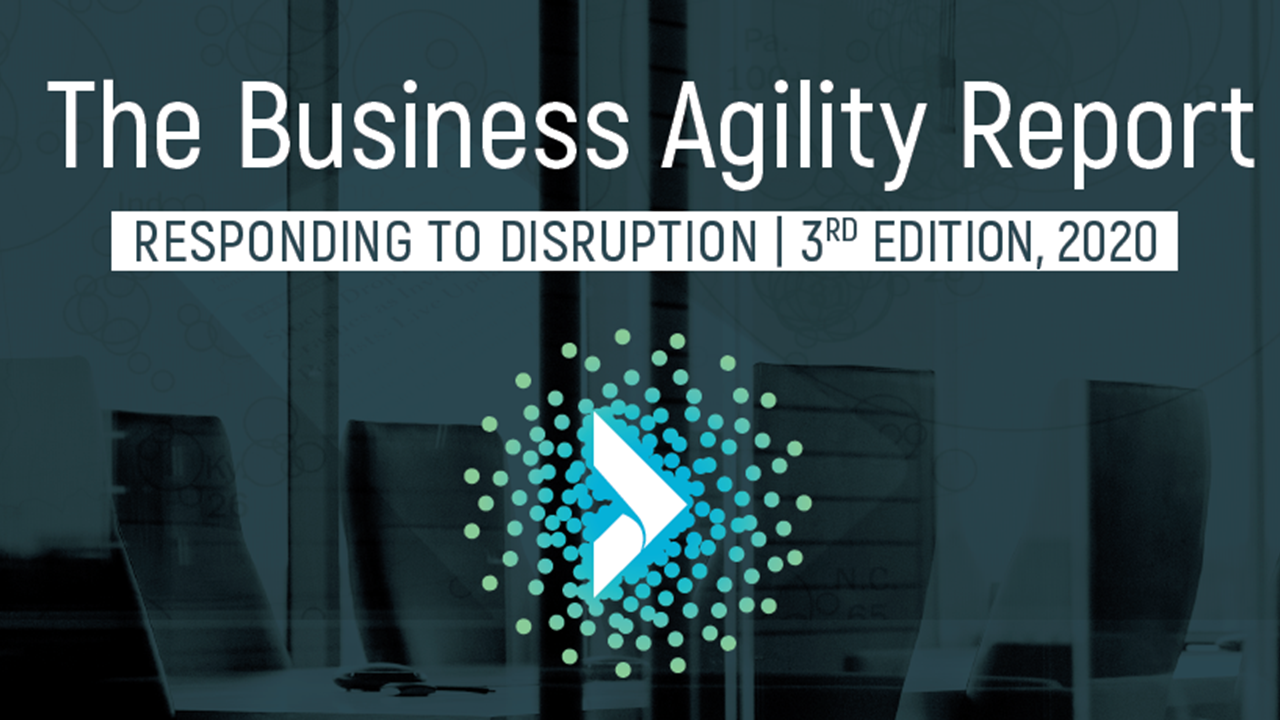The Business Agility Institute presented a few days ago the new B.A.R. 2020 (Business Agility Report), which revealed some valuable and interesting insights.
As several of you already know, Business Agility can be defined as the capability of an organization to realize and sustain its full potential, by turning market disruption into competitive advantage, innovating and delivering more effectively and thriving in complexity, regardless of any environment changes.
In my last talk at Agile Business Day, I compared that capability to morphing:

Business Agility means for organizations to be able to respond to sudden environment changes by altering continually their internal state from one to another and again to the next one
On Thursday 17th I had the pleasure to attend to the presentation given by the Business Agility Institute, through its CEO and Founder Evan Leybourn and his super guests, of the 2020 Business Agility Report (B.A.R. 2020).

The diruption Covid-19 brought to any organizations, has been actually turned into an opportunity for the Business Agility Institute (BAI).
BAI analyzed Covid-19 lockdown dates based on region, with most regions entering lockdown within 8 days of one another. Due to this tight grouping, the mode date of 23 March 2020 was used to approximate the average lockdown date, with results obtained prior to this date defined as Pre-Covid-19 (192 responses), and those obtained on or after this date defined as Post-Covid-19 (241 responses).
This gave BAI the possibility to explore and deep dive on levels of maturity of organizations, through the answers given by their respondents, before and after lockdowns.
Among the many interesting key learnings, I definitely remained touched by one insight:
Covid-19 acted as a forcing function to any organizations
In general the report highlights the 8% of year-on-year overall worldwide increase in business agility maturity. But, interestingly, one figure totally caught my attention:

If you dig a bit more, you discover the three main factors that, in general, can impact positively on increasing the levels of Business Agility of organizations. They are:
- Transformation of Human Resources
- Focus on Customer Centricity
- Length of Time Spent on the journey
While focus on Customer Centricity is not new nor the length of time spent by an organization in pursuing the Business Agility can be as such, since it can be considered as practicing a sport: the longer and more consistently you practice it, the better the results.
The real novelty (or better to say, the long awaited confirmation) is that involving and transforming Human Resource department really moves the needle from failure to success.
Additionally, the privileged window that BAI opened wide in front of us through its report, further confirmed the importance of HR in that journey:
Organizations that included Human Resources department in their transformation saw a further 12% increase in their maturity, post Covid-19
After a first careful reading of the report, we can summarize the key learning points as follows:
- As John Kotter suggested in his great books, any organizations is able to really change, only if its internally instills a Sense of Urgency. Covid-19 pushed every organization, abruptly and dramatically, in such a land of concern where urgency, remediation and fast adaptation where the only fixed thoughts
- Business Agility is a muscle. The more you train it the better your results
- HR department needs to be involved in this journey from day one. It catalyzes the transformation process


